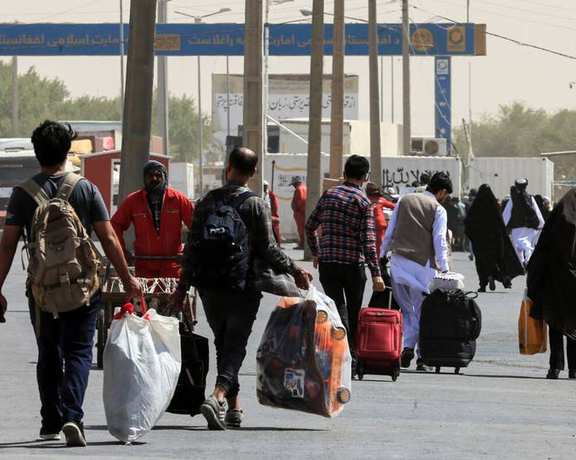Afghans rally behind boycott of Iranian goods as deportations surge

As forced deportations of Afghan migrants from Iran escalate, Afghans are pushing a nationwide boycott of Iranian goods in protest.

As forced deportations of Afghan migrants from Iran escalate, Afghans are pushing a nationwide boycott of Iranian goods in protest.
Activists are urging citizens and business owners to halt the import and purchase of Iranian goods, with some deploying the social media hashtag "Boycott Iranian goods: a national demand".
More than half a million Afghans have been deported from Iran in the weeks after its 12-day conflict with Israel ended.
Iranian state-affiliated media have promoted unverified accusations that Afghan migrants were involved in espionage for Israel.
The Red Cross now warns that as many as one million more could be forced out by year’s end.
“We should not financially support a regime that humiliates, tortures, and discriminates against Afghan migrants,” wrote one Afghan user, Niloofar Yousefi.
“Until this injustice ends, we will raise our voices through this boycott.” She urged Afghan merchants to stop importing Iranian goods altogether.
In 2024, Iran accounted for between a quarter and a third of Afghanistan's $10.8 billion in total imports, World Bank figures show, making it the country’s largest trading partner by value.
Trade figures underline what’s at stake economically for Iran. Between March and June 2025 alone, Tehran exported $520 million in non-oil goods to Afghanistan. Over the course of 2024, that number reached $3.1 billion, placing Afghanistan among Iran’s top five export markets.
In the city of the Afghan city of Herat, a physician, Dr. Alireza Hashemi, announced he would stop prescribing Iranian-made medications in protest of Tehran’s treatment of Afghan nationals.
Another social media user, Nasim Kamgar, posted a video of a young Afghan child describing abuse at the hands of Iranian border guards.
“This is not our right,” she wrote, adding that Taliban policies have left Afghan migrants increasingly vulnerable to mistreatment abroad.
Iranian officials have insisted that only undocumented migrants are being deported, but both Afghan news outlets and international aid groups have reported otherwise.
Multiple cases have surfaced in which migrants with valid visas or residency papers were expelled—some even had their passports and identity cards torn up by Iranian border forces.
With public anger mounting and the boycott movement gaining traction, Iran’s economic ties to Afghanistan now face unprecedented strain—intensifying a rift between the two countries as hundreds of thousands of vulnerable Afghans face the threat of forced return.